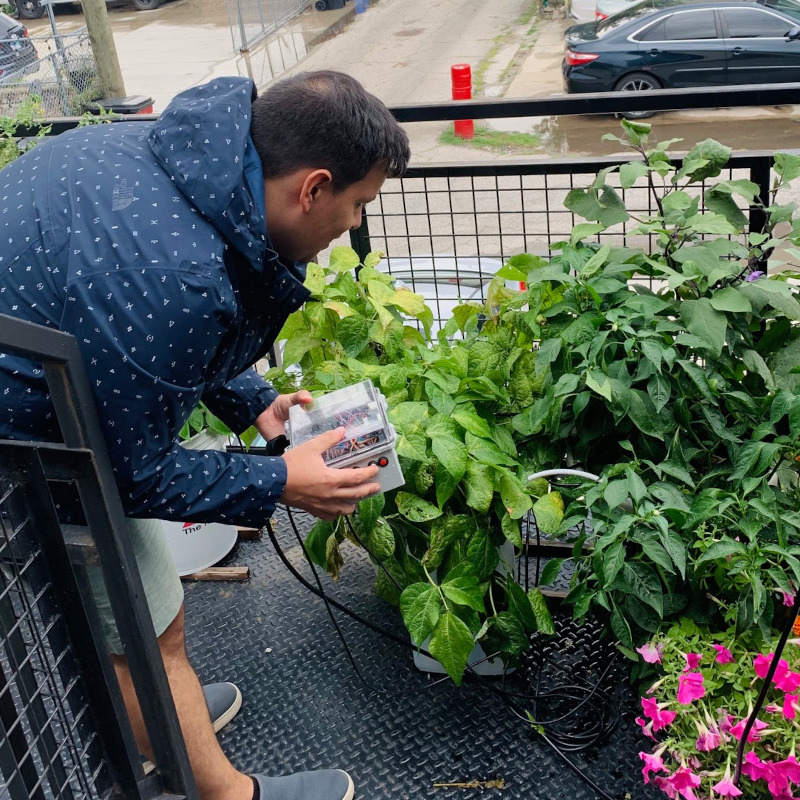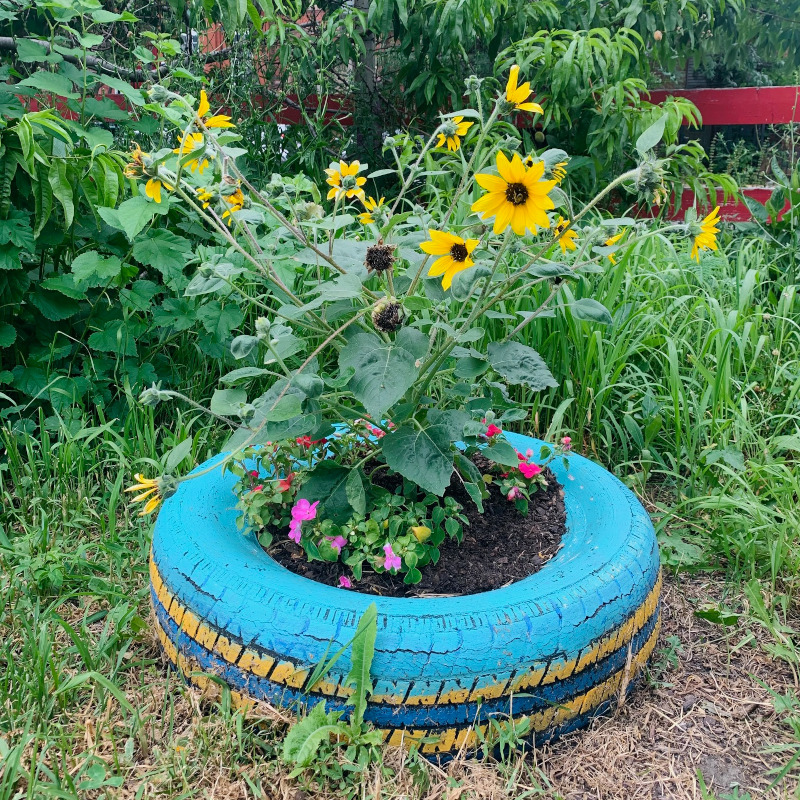Growing Okra in Containers and Pots

Don’t let limited space keep you from enjoying delicious home-grown okra! No matter the size of your garden, we’ll show you how to produce a bountiful okra crop in containers all season long.
The Best Container Size for Okra
The first thing to consider when growing okra in a container is what kind of pot you’re going to use.
Okra have a fairly large root system, so it’s important they have ample room to grow. When in doubt, five-gallon buckets (or a container of similar size) are a great option for okra. But if you’re looking to get technical, a good rule of thumb is to aim for a container that is roughly 577 cubic inches (9,455 cubic centimetres) in size.
Depending on the size of the pot you’re using, you can also put two or three okra plants in one container. Growing multiple okra in one pot is a great way to increase yield while working with limited space. It’s typically suggested to space okra plants 1 - 2 feet (30 - 60 centimetres) away from each other. But for most varieties, you can get away with packing okra in a little tighter than this.
Interested in Container Gardening?



Join the Garden Auntie newsletter!
Get expert tips, tricks, and inspiration for successful container gardening no matter the environment. Create a stunning and thriving garden, even in small spaces!
The Best Type of Container for Okra
Plastic pots, terracotta, and fabric grow bags all make fine containers for okra. When choosing a pot to plant okra in, the type of material it’s made out of doesn’t really matter. What does matter, however, is how well that material releases excess water.
Poor drainage is the number one killer of okra grown in pots. If your okra sit in standing water for too long, their roots will rot and the plants will likely wither away.
If you’re using a plastic container for growing okra, it’s crucial there are 2 - 4 holes in the bottom to allow excess water to drain.
Terracotta pots, along with fabric grow bags, are a great container option for okra because they are naturally porous. Most terracotta pots also come with a hole in the bottom for additional drainage.
If growing your okra in grow bags, be sure to test how well they drain before planting. If water doesn’t leak through the bag quickly, you may want to add one or two holes to the bottom to keep the roots of your okra plant healthy and happy.
The Best Soil for Growing Okra in Containers
Drainage also plays a key part in the type of soil you choose for okra containers.
Traditional soil, such as the type of dirt you can dig up in your backyard, is much too dense for okra planted in pots. It will trap moisture in the container to the point where it can cause fungal issues for okra as well as root rot.
Instead, opt for potting soil or soil specifically designated as safe for container gardening. Avoid all others.
Final Tips for Growing Okra in Pots
Hopefully by now you’ve seen that growing okra in pots is pretty easy so long as you have the right container and right soil.
The key, as stated before, is drainage. You will likely notice that okra grown in containers are much thirstier than okra grown in a traditional garden bed. Be sure to adjust your schedule to water more frequently.
Of course, the same rules apply to container grown okra that apply to okra grown in a traditional garden, such as the amount of sunlight they need and when to plant them. You can find that information (and more!) in our complete guide on growing okra.
Happy planting!
